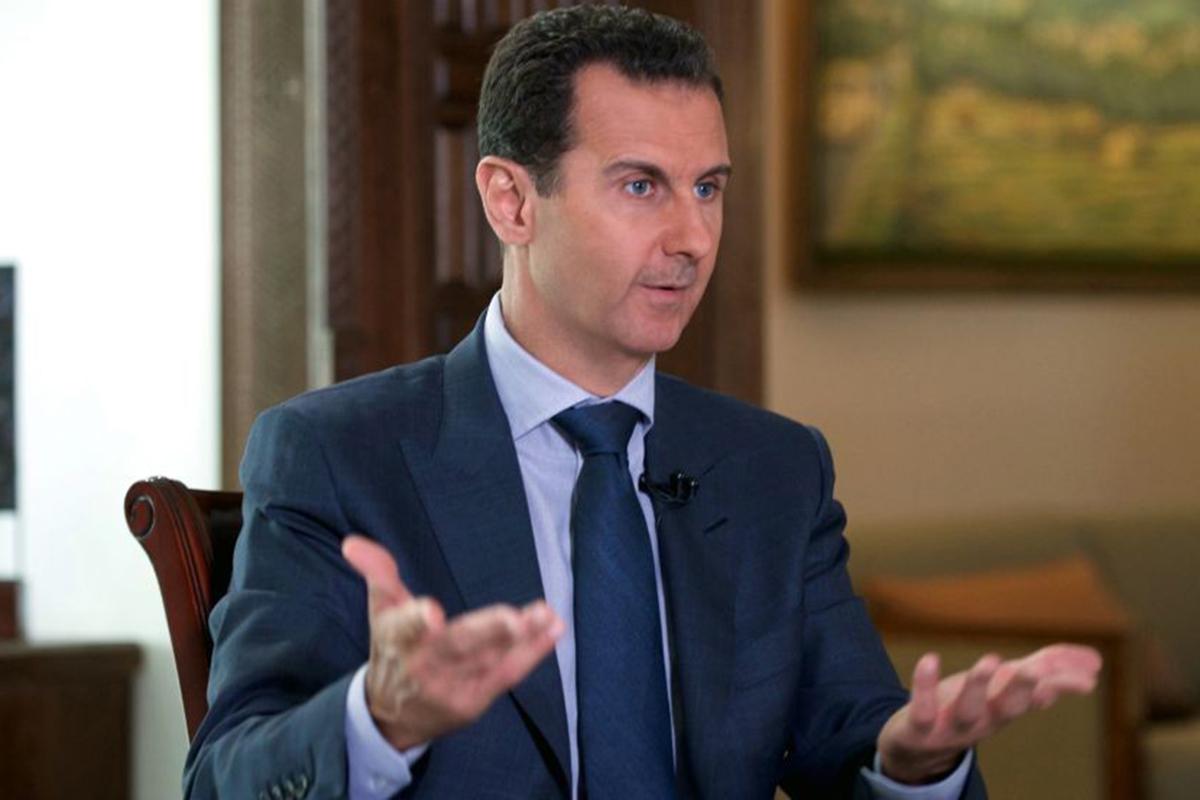Cooperation with Assad may be the only route to peace in Syria
Please send your letters to letters@independent.co.uk

To end the suffering of the people of Aleppo the best thing the US and UK can do is to cooperate with Assad and Putin in bringing that about. If America says the rebels have to surrender control of eastern Aleppo, the battle can come to a quick end with the minimum of fighting. Assad would certainly accept massive aid going to all parts of the city in those circumstances and there would be a clear way forward for peace in the country as a whole.
Tragically, talk coming out of America is about beefing up arms supplies to rebels. This would mean ongoing war. We have been going along with US foreign policy in Syria since the war started. It is high time for a radical rethink from Theresa May and the UK Government.
Brendan O’Brien London
An unwanted gift
You report that Turkey's President Erdogan presented Boris Johnson with a document yesterday signed by Ottoman Sultan Abdulaziz Khan. Odd that Boris should accept such a gift bearing in mind that “Abdul Hamid" was nicknamed the Red Sultan or Abdul the Damned due to the massacres committed against minorities during his rule and his use of a secret police to silence dissent and republicanism. 300,000 Armenians were killed in the Hamidian massacres. Not a very nice man.
Mick Humphreys Taunton
We can’t wait a decade for another Labour government
Not about the next election, eh? (This is about the future of Britain, not the next election, Letters, 27 September) I bet all those tenants sitting in extortionate spare-bedroomed houses having their disability benefits mangled are chorusing: "Yeah, no problem, we can wait 10 or 15 years for you to be in a position to do something about it.”
Margaret Adams Keighley
Bring humanity and common sense back to the roads
Sean O'Grady makes some valid and equally invalid points about the cycling debate.
I am a 66-year-old lycra-wearing cyclist and a driver. I have cycled thousands of miles and only had one accident which luckily didn't cause any lasting damage (it was the driver's fault and cost her £3,500 – I have insurance).
The adversarial nature of the public debate doesn't help. Safety of every road user should be a given, as should common sense. No phone call is that important (incidentally I've seen huge numbers of horse riders on the phone). The average speed of any urban journey is hardly changed by carving up a cyclist (you just get to the next traffic lights or junction earlier). Pavements are for walking, not cycling or parking a car. Cycling in the dark without lights is stupid, no more no less.
The police can't do it all, so as I say common sense allied to a little humanity would be nice.
Jim Alexander Address supplied
Bradley Wiggins
Surely all TUEs should be made public once approved.
Tony McMahon Address supplied
Wells Fargo is an argument for breaking up the banks
“Just when you thought you had seen it all, the big banks take scandal to a new level (Wells Fargo’s boss has forfeited $41m over its bogus accounts scandal, James Moore, 27 September).
Massive fraud matched by massive bonuses, blamed on the little guy while the top brass go free. Looking back upon banking sector conduct one can only shake one’s head.
If there was a market for it, it was manipulated. If customers didn’t understand it, you sold it anyway. If they still wouldn’t buy it, you snuck it into something that they would.
Need to foreclose? Hey, fake the documentation. And these are only the things we know. Many of the largest investigations of banker wrong-doing have ended in so-called settlements that keep the gory details secret.
Will the upcoming Deutsche Bank penalty prove any different? Throughout there is the inescapable fact that either the senior executives knew what was going on or they did not. If they knew then they were complicit and should be prosecuted. If they did not know then they were incompetent and should be banned from the field forever.
There is of course one last possibility: that banks have become so big and complex that no executive could ever be expected to know what was going on – in which case they should be broken up into smaller manageable pieces.
Take your choice. It is one or all of the above. Finally, you have to conclude that if the authorities do nothing then the banks that had their hand in your pockets also have the body politic in theirs.
Robert Jenkins Senior fellow at Better Markets and former member of the Bank of England’s Financial Policy Committee

Join our commenting forum
Join thought-provoking conversations, follow other Independent readers and see their replies